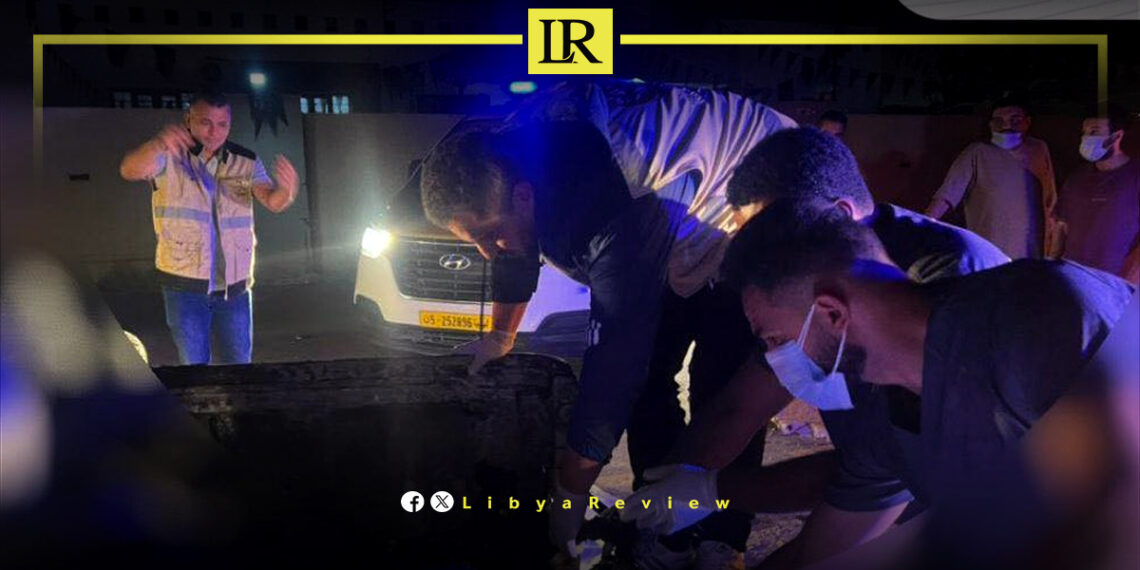Intense armed clashes broke out in the Libyan capital late Monday, claiming multiple lives and plunging parts of Tripoli into chaos. The Emergency and Support Medical Center in Tripoli confirmed it has retrieved six bodies from the sites of heavy fighting around the Abu Salim district. Residents reported hours of gunfire and explosions after news spread of the reported killing of militia commander Abdulghani al-Kikli, widely known as “Ghneiwa,” who led the Stability Support Apparatus (SSA) – one of Tripoli’s most powerful armed groups. The violence erupted swiftly following Al-Kikli’s death, with witnesses describing volleys of small arms and heavy weaponry echoing across southern neighborhoods of the city.
. Local media and officials indicated that the clashes involved rival factions vying for influence after Ghneiwa’s apparent assassination inside a military base. Abu Salim, a densely populated area that was the stronghold of Ghneiwa’s SSA militia, saw the fiercest fighting. Armed units linked to the Government of National Unity (GNU) moved quickly to secure key positions amid the unrest. By midnight, streets normally teeming with traffic were deserted as the Interior Ministry urged residents to stay indoors for safety, and power outages hit several neighborhoods due to the fighting.
In response to the outbreak of violence, Libya’s Ministry of Health raised the alert level at all hospitals in Tripoli, directing hospitals and medical centers to remain on high emergency footing to treat any casualties.
Ambulance and emergency teams were deployed across the capital as the overnight clashes intensified. Meanwhile, the Ministry of Defense of the GNU announced early Tuesday that its forces had fully secured the Abu Salim area, ending the security operation successfully after regaining control of the militia’s headquarters.
. The Defense Ministry’s statement declared the immediate threat contained and emphasized that operations were ongoing to “ensure the sustained security and stability” of the capital. Prime Minister Abdulhamid Dbeibah praised the army and police units for “imposing state authority” and restoring order in Tripoli, underscoring the government’s resolve to prevent further militia violence.
By Tuesday morning, calm had largely returned to Tripoli following the night of unrest. . Security forces patrolled formerly embattled streets of Abu Salim, and only sporadic bursts of gunfire were heard as remaining tensions eased. Municipal authorities reported that public life was gradually normalizing: the capital’s main airport, which had briefly rerouted flights as a precaution, prepared to resume normal operations, and the University of Tripoli announced classes would remain suspended until stability is assured. Residents cautiously emerged to assess damage, relieved that a tentative peace had been restored after one of Tripoli’s most intense episodes of fighting in months.
This sudden flare-up highlights the persistent volatility in Libya’s security landscape, even under the GNU based in Tripoli. Abdulghani “Ghneiwa” al-Kikli had been a central figure in Tripoli’s patchwork of militias, which have periodically clashed despite a nationwide ceasefire in 2020.
The Stability Support Apparatus, nominally under Libya’s Presidential Council, is one of several armed factions that grew in power during years of conflict and political division. Libya has endured little lasting stability since the 2011 uprising that toppled Muammar Gaddafi, and the country remains split between rival administrations in the west and east.
While major open warfare has paused, Tripoli’s latest spate of violence underscores the fragile peace and the challenge of reining in militias in the quest for lasting security. Authorities in the capital have reaffirmed their commitment to prevent escalation, and the United Nations Support Mission in Libya has urged all parties to exercise restraint and protect civilians as the city returns to a cautious calm.


